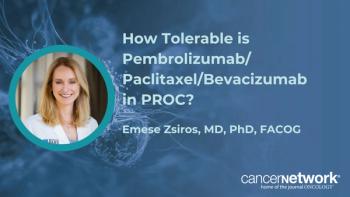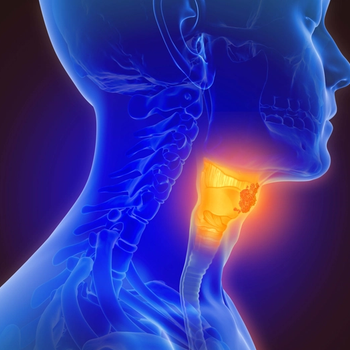
Hispanic Origin Influenced Risk for Hepatocellular Carcinoma
US-born Hispanics are more likely to get hepatocellular carcinoma and to die from chronic liver disease compared with their foreign-born counterparts.
Hispanics of US origin had a greater likelihood of getting hepatocellular carcinoma (HCC) and dying from chronic liver disease (CLD) compared with their foreign-born counterparts, according to the results of a study
“Although overall known differences in risk factors do not account for these observed disparities in HCC incidence and CLD mortality risk between US-born and foreign-born Hispanics, we have observed that HCV/HBV [hepatitis C virus/hepatitis B virus] infection, diabetes, excessive alcohol drinking, and current smoking are important risk factors in this population,” wrote researchers led by Veronica Wendy Setiawan, PhD, of the Keck School of Medicine at the University of Southern California in Los Angeles.
“To reduce and control the development of HCC and death from CLD, public health recommendations such as the identification and treatment of patients with chronic infections with HBV or HCV and the prevention and control of diabetes, in addition to recommendations to limit alcohol consumption and quit smoking, should be targeted toward Hispanics, especially those who are born in the United States,” they wrote.
According to the study, prior research has shown increased morbidity and mortality among Hispanics as a result of HCC and CLD, and disparities in the incidence of death from these conditions have been reported by nativity.
In this study, Setiawan and colleagues used data from a prospective study of 18,485 US-born and 18,379 foreign-born Hispanics to assess whether the risk for these conditions differed by birth place and whether known risk factors could account for any discovered differences. The majority of foreign-born Hispanics were from Mexico, with additional participants from Central or South America.
At a median follow-up of 19.6 years, 189 patients were diagnosed with HCC and 298 died from CLD. Age-adjusted incidence of HCC was almost twice as high in US-born Hispanics compared with foreign-born Hispanic men (44.7 vs 23.1), but similar rates were seen among women.
In addition, the data showed that death from CLD was also twice as high among US-born Hispanics as it was in foreign-born Hispanics (men: 66.3 vs 35.1; women: 42.2 vs 19.7). A majority of the deaths from CLD in men were because of alcoholic liver disease; however, in women the majority were from cirrhosis or fibrosis.
“The diverging nativity patterns by sex for HCC might be due to a tendency of male immigrants to adopt unhealthy lifestyles (eg, excessive alcohol drinking, weight gain, and illicit drug use) in contrast to females,” the researchers wrote.
Among foreign-born Hispanics, those who drank two or more drinks a day had a three times higher risk for HCC compared with nondrinkers (hazard ratio [HR], 2.96 [95% CI, 1.44–6.06]). Current smoking was associated with increased carcinoma risk in both US- and foreign-born Hispanics. In addition, HCV/HBV infection and diabetes were also associated with both HCC and CLD.
After adjusting for these risk factors, the researchers found that the HR for HCC and death from CLD was 1.58 among US-born Hispanics and 1.85 among foreign-born Hispanics.
Newsletter
Stay up to date on recent advances in the multidisciplinary approach to cancer.










































